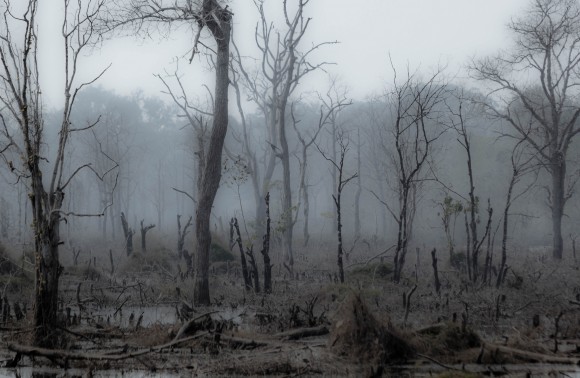2nd Advent—openness, In darkness we are receptive to light

Cambodia, January 2015 Credit: Chris Bird
Series outline
1st Advent — Bleakness
2nd Advent — Openness
3rd Advent — Anticipation
4th Advent — Wonder
Introduction
What follows is one of four reflections on Advent, which is typically the four Sundays before Christmas. In this series I hope to document my experience of disillusionment with Christian teachings and eventual return to faith that is knowingly naive. My faith is now full of paradoxes: I’m jaded but not cynical, I’m trusting yet suspicious, I’m innocent but also complicit. From the vantage point of one who is awakening to his place of comfort and privilege in a world of suffering and complexity, the paradox becomes a tenuous salvation. – Aiden Enns
Second Advent Reflection: Openness
In darkness we remain receptive to light
Our mature years are characterized by a kind of bright sadness and sober happiness, if that makes any sense…. There is still darkness in the second half of life — in fact maybe even more. But there is now a changed capacity to hold it creatively and with less anxiety.
It is what John of the Cross called ‘luminous darkness,’ and it explains the simultaneous coexistence of deep suffering and intense joy in the saints. — Richard Rohr, Falling Upwards: A Spirituality for the Two Halves of Life
After my first advent reflection on the grim state of the world and my disillusionment with much of the Christian faith, one reader was concerned for my mental welfare: “Is Aiden going to be okay?” The answer is, “Yes, I’ll be okay. I’ll even have fun. But I’m also close to tears more often.”
Just because things are bleak, doesn’t mean I have to be dour or bitter. I prefer a sober analysis, even if it is bleak, but that doesn’t mean that resignation and depression need to follow. My faith has changed. It’s no longer a ticket to heaven, it’s a path to the fullness of life in the midst of turmoil here and now.
In the darkness of winter, to put it metaphorically — or, on the eve of what feels like an ecological, economic, and social apocalypse, to put it emotionally — I await the arrival of the saviour.
But I’m not waiting for a hero-type saviour, a cosmic super-bully, to vanquish our enemies and institute a master plan to redeem the earth. These heroes are part of our problem. With the prophet Isaiah, I yearn for a time when “the wolf and the lamb will feed together, and the lion will eat straw like the ox.” I’m waiting for the incarnation of love and reconciliation.
TV programs, movie plots, and Armageddon preachers teach us to be afraid; we build fortresses, arm alarm systems, and steel ourselves against evildoers. Our culture is oppositional and tight-fisted (this is the foundation of capitalism, after all).
There must be a better way, and I wait for it. As we step out from under the veil of fear and move toward trusting in an abundance of goodness, we glimpse a freedom that transcends death.
A posture of openness is difficult, but inherently gratifying. The tender blossom is open to pollination. Are we, like the blossom, open to new life, or do we remain closed and cling to the security of possessiveness? I admit I am not enough like a blossom. But I strive to wait with openness, to be alive with the rest of nature. I want to be open to both the sunshine and the storm.
The Buddhist teacher Pema Chodron describes a posture of openness in the first chapter of her book, The Places that Scare You: A Guide to Fearlessness in Difficult Times:
When I was about six years old I received the essential bodichitta [open, soft, receptive] teaching from an old woman sitting in the sun. I was walking by her house one day feeling lonely, unloved, and mad, kicking anything I could find. Laughing, she said to me, ‘Little girl, don’t you go letting life harden your heart.’
Right there, I received this pithy instruction: we can let the circumstances of our lives harden us so that we become increasingly resentful and afraid, or we can let them soften us and make us kinder and more open to what scares us. We always have this choice.
I need to find a faith that addresses the dark mountain of injustice before us, and at the same time assures me and our fellow pilgrims that we are not alone. This faith must remain open in order to receive new insight and light.
In this time of advent, even in this time of darkness, let us not succumb to despair but remain open and await the birth of liberation among us.
Aiden Enns is the editor of Geez magazine in Winnipeg, Manitoba. Next week he writes about the seduction and rewards of anticipation. He invites your comments and reflections, editor[at]geezmagazine[dot]org.
Image credit: Chris Bird, flickr.com.


Sorry, comments are closed.